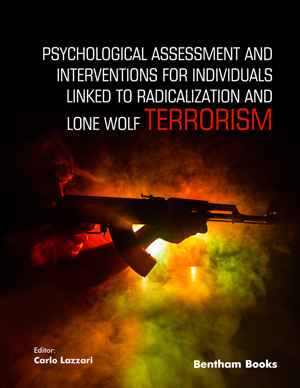Abstract
Objectives: The current research uses a phenomenological and socio-psychological approach to understand radicalization and terrorism in the lone wolf and profile its psychological traits.
Methods: A Delphi group of twelve experts in radicalization, selected from psychiatric professions, met regularly to discuss the aspects of the topic and interpret it according to a phenomenological social psychology approach. A mixed-method research approach was used for analysis. The population consisted of service users and patients of a psychiatric service covering a regional area in England with high inter-ethnic and inter-religious conflicts. In the first stage, the panel expressed opinions about the sociopsychiatric aspects of radicalization. A confirmatory sign test computed the panel’s agreement for the significance of the emerging themes.
Results: The phenomenological analysis has captured dominant behaviors, feelings, and attitudes in people at risk of radicalization. At the same time, the sign test expressed the statistical significance: 1) emotions (panel agreement p = n.s.) inclusive of anger and frustration for societal rejection, 2) behaviors (p<0.01) inclusive of change of character, and accessing radicalized web sites, 3) prejudicial thoughts (p = n.s.) such as affiliation to radicalized individuals and acquaintances (p<0.001), 4) weapons fascination and thoughts (p<0.01), and 5) desire of being a hero (p = n.s.)
Conclusions: The current research captured central aspects of radicalization’s social psychology in the lone wolf and the phenomenological aspects indicating a risk of radicalization and a predisposition to conduct terrorist acts.
Keywords: Assessment, Delphi Groups, lone wolf, Phenomenology, Radicalization, Social Psychology, Terrorism.













